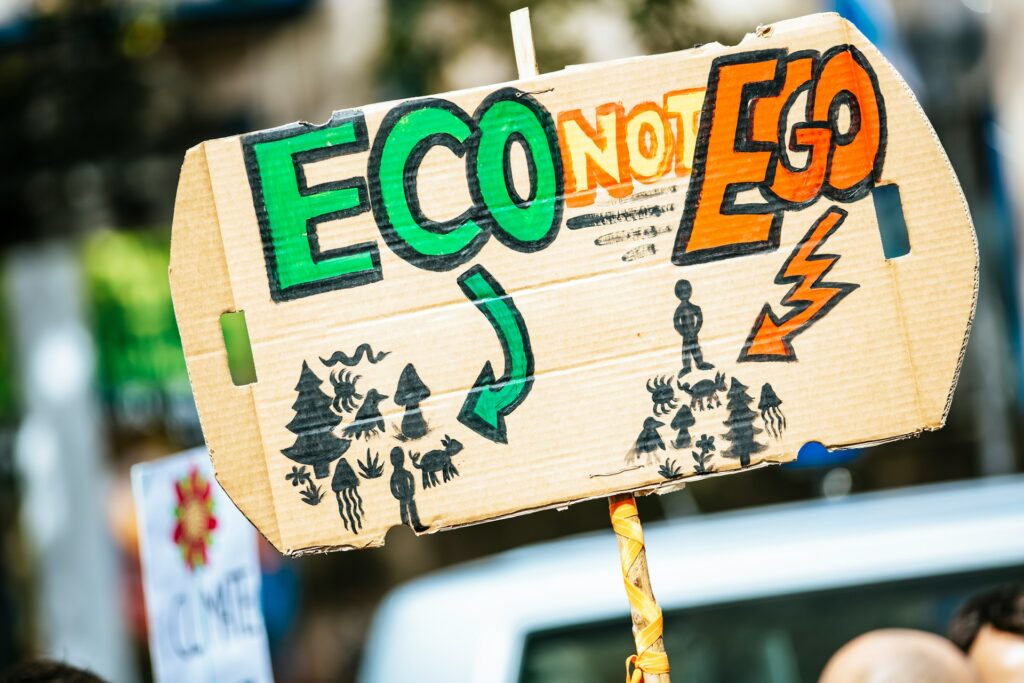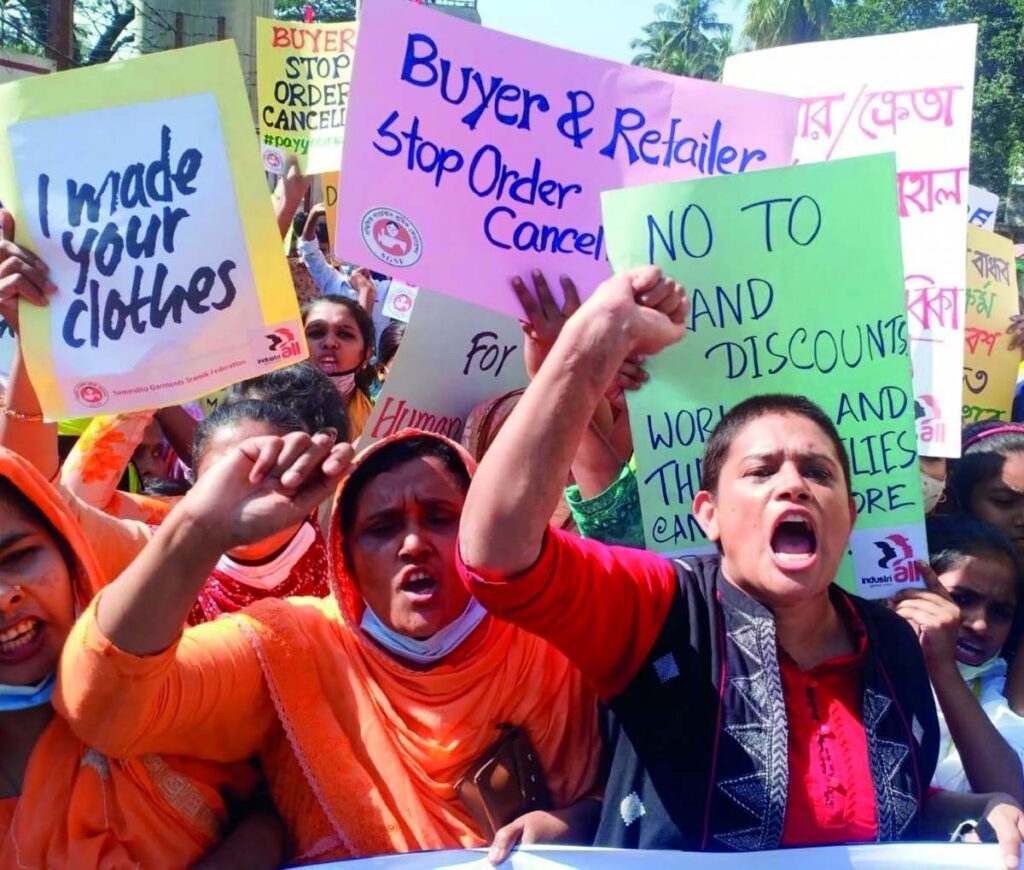Introduction
The fashion industry is at a pivotal crossroads, facing critical scrutiny over its environmental footprint and social impact. Amidst growing concerns, a transformative movement toward ethical fashion has emerged. This movement not only redefines style but also advocates for a healthier planet and more equitable societal norms.
Brief overview of ethical fashion
Ethical fashion represents a holistic approach to clothing design, production, and consumption. It encompasses a wide range of practices – from using eco-friendly materials and minimizing waste to ensuring fair wages and safe working conditions for workers. At its core, ethical fashion strives to balance aesthetics with sustainability and social responsibility.
Importance of sustainable and fair trade practices in the fashion industry

Adopting sustainable and fair trade practices is crucial for the fashion industry. These practices help in reducing the ecological footprint by conserving resources and using environmentally friendly materials. Equally important, fair trade principles support the livelihoods of workers, ensuring they receive fair compensation and work under safe conditions. Together, these practices pave the way for a more ethical and responsible fashion future.
Environmental Impact
The fashion industry, historically known for its significant environmental footprint, faces increasing scrutiny over its practices. However, the shift toward ethical fashion promises a roadmap to mitigating some of these detrimental effects. By fundamentally rethinking how clothes are made, ethical fashion focuses on both the long-term viability of the planet and the immediate health of its ecosystems.
Reduction of carbon footprint
Ethical fashion actively contributes to the reduction of the industry’s carbon footprint. Traditional fashion production methods are energy-intensive, relying heavily on fossil fuels throughout the manufacturing and distribution processes. In contrast, ethical fashion brands often opt for renewable energy sources and implement energy-efficient practices at every stage of production. This shift not only cuts down on greenhouse gas emissions but also paves the way for a more sustainable business model that other industries can emulate. Moreover, by prioritizing materials with lower environmental impact, such as organic cotton or recycled polyester, ethical fashion reduces the overall energy needed to produce clothing items, thus further decreasing the carbon footprint.
Preservation of natural resources
Another cornerstone of ethical fashion is the preservation of natural resources. This approach to fashion is characterized by a more judicious use of water, the mitigation of harmful chemicals, and the promotion of biodiversity. Traditional textile production is notorious for its excessive water consumption and pollution. Ethical fashion brands, however, implement water-efficient technologies and non-toxic dyes, significantly reducing their impact on waterways and ecosystems. Additionally, by favoring organic farming practices for natural fibers, these brands help maintain soil health and support the surrounding biodiversity, ensuring that the environmental costs of fashion are profoundly reduced.
Social Impact

The transformation towards ethical fashion isn’t limited to environmental benefits; it also fosters significant social change. By committing to principles of fairness and equity, ethical fashion brands are setting new standards for labor practices and community engagement in the industry.
Promotion of fair labor practices
Central to the mission of ethical fashion is the promotion of fair labor practices. This commitment is manifest in several ways, including ensuring living wages, safe working conditions, and respecting workers’ rights to association and collective bargaining. Unlike the exploitation often associated with fast fashion supply chains, ethical fashion brands work closely with their suppliers to ensure that everyone involved in the manufacturing process is treated fairly and with dignity. This approach not only improves the lives of workers but also challenges other companies to elevate their standards, gradually shifting the industry towards a more equitable model.
Empowerment of marginalized communities
Ethical fashion often prioritizes working with artisans and producers from marginalized communities, providing them with sustainable income opportunities and access to global markets. Through fair trade practices, these brands ensure that artisans are compensated fairly for their work, which can significantly impact local economies. Moreover, by valuing traditional crafts and techniques, ethical fashion helps preserve cultural heritage and provides a platform for these communities to share their stories and skills with a wider audience. This empowerment goes beyond economic benefits, fostering a sense of pride and identity among artisans.
Fostering social responsibility among consumers
Lastly, the rise of ethical fashion plays a pivotal role in fostering social responsibility among consumers. In an age where information about the production process is increasingly accessible, consumers are more aware of the impacts of their purchasing decisions. Ethical fashion brands often transparently share their practices, encouraging consumers to consider the social and environmental ramifications of their fashion choices. This transparency not only cultivates a more conscientious consumer base but also ignites conversations about sustainability and social justice, inspiring collective action towards a more equitable and sustainable fashion industry.
Economic Benefits
The rise of ethical fashion is not only a beacon for environmental and social reform but also serves as a catalyst for numerous economic benefits. By focusing on sustainability, fair trade, and ethical practices, the fashion industry can contribute positively to both global and local economies, ensuring a balanced and equitable growth.
Support for local artisans and craftsmen
One of the most significant economic impacts of ethical fashion is the support it offers to local artisans and craftsmen. By prioritizing fair trade practices, ethical fashion brands ensure that artisans are paid a fair wage for their work, thereby improving their standard of living. This approach helps preserve traditional crafts and techniques that might otherwise be lost in the wake of globalization and mass production. Moreover, empowering local communities by providing stable income opportunities can lead to the socio-economic development of entire regions. Consumers investing in ethical fashion are, in essence, contributing to the growth and sustainability of artisan and craftsmen communities worldwide.
Long-term financial sustainability for brands
Adopting ethical practices can also lead to long-term financial sustainability for brands. Initially, the shift towards sustainability may require significant investment in ethical sourcing, fair labor practices, and eco-friendly materials. However, these costs can be offset by the long-term benefits of building a loyal customer base that values and supports ethical practices. Moreover, as raw material scarcity becomes more pronounced and consumers increasingly demand sustainable products, brands that have already embraced ethical practices are likely to have a competitive advantage. They are positioned to face future economic challenges more robustly, ensuring their financial sustainability in an ever-evolving global market.
Influence on Consumer Behavior

The ethical fashion movement is significantly altering consumer behavior. As awareness of environmental issues and human rights grows, more individuals are seeking ways to make positive changes through their purchasing decisions. This shift in mindset is fostering a culture of conscious consumption and increasing demand for eco-friendly clothing options.
Shift toward conscious consumption
The shift towards conscious consumption represents a transformative change in the way people think about and engage with fashion. Consumers are becoming more informed about the environmental and social impact of their purchases and are actively seeking out brands that align with their values. This new breed of consumers prioritizes products made from sustainable materials, produced in fair working conditions, and designed with a lower environmental footprint. The result is a growing emphasis on quality over quantity, where the lifespan of a garment and the ethics behind its production hold more weight than fleeting trends. This conscious approach to consumption encourages a more sustainable lifestyle, reducing waste and promoting a more thoughtful interaction with the fashion industry.
Increased demand for eco-friendly clothing options
As consumers become more environmentally conscious, there is a noticeable increase in the demand for eco-friendly clothing options. This demand is driving innovation within the fashion industry, leading to the development of new, sustainable materials and production methods that minimize environmental harm. Brands that offer products made from organic cotton, recycled materials, and other sustainable resources are finding favor with eco-conscious consumers. Additionally, initiatives like clothing rental services, second-hand shops, and clothing swaps are gaining traction, offering alternatives to fast fashion by promoting reuse and recycling. This increased interest in eco-friendly clothing reflects a broader societal shift towards sustainability and environmental responsibility, signaling a positive step forward for both the fashion industry and the planet.
In conclusion, the positive impacts of embracing ethical fashion are multifaceted, spanning economic benefits and profound influence on consumer behavior. By supporting local artisans and craftsmen, fostering long-term financial sustainability for brands, promoting conscious consumption, and increasing demand for eco-friendly options, the ethical fashion movement is paving the way for a more equitable, sustainable, and environmentally responsible industry.
Conclusion
Recap of the positive impacts of embracing ethical fashion
Ethical fashion brings a myriad of benefits to both our planet and its people. By prioritizing sustainability, we mitigate environmental damage, reducing waste and promoting the conservation of resources. Fair trade practices ensure that workers receive fair wages and work in safe conditions, fostering social equity. Choosing eco-friendly clothing also encourages the use of non-toxic materials, which benefits both consumers’ health and the environment.
Call to action for individuals to support sustainable and socially responsible fashion choices.
It’s imperative for each of us to support ethical fashion through our purchasing decisions. By opting for sustainable and fair trade products, we can collectively make a significant impact. Look for certifications, research brands’ ethical practices, and consider the longevity of your purchases. Remember, every sustainable choice counts towards building a more equitable and environmentally friendly world. Let’s take the initiative to transform our wardrobes into catalysts for positive change.